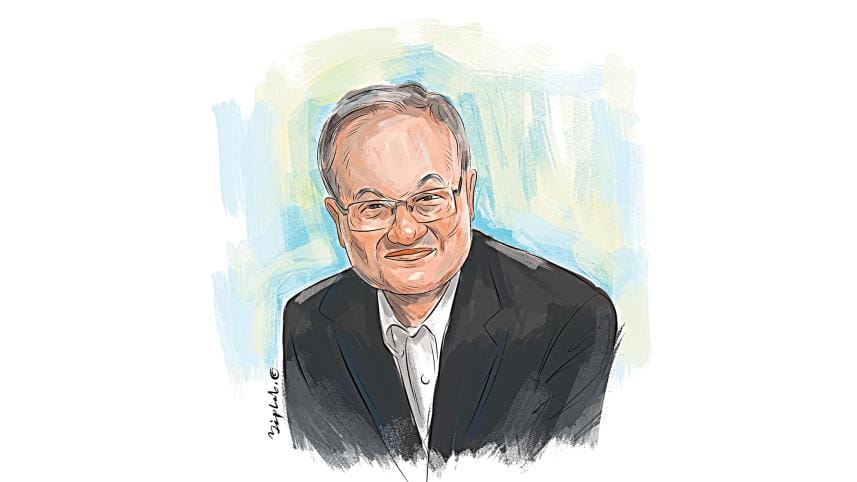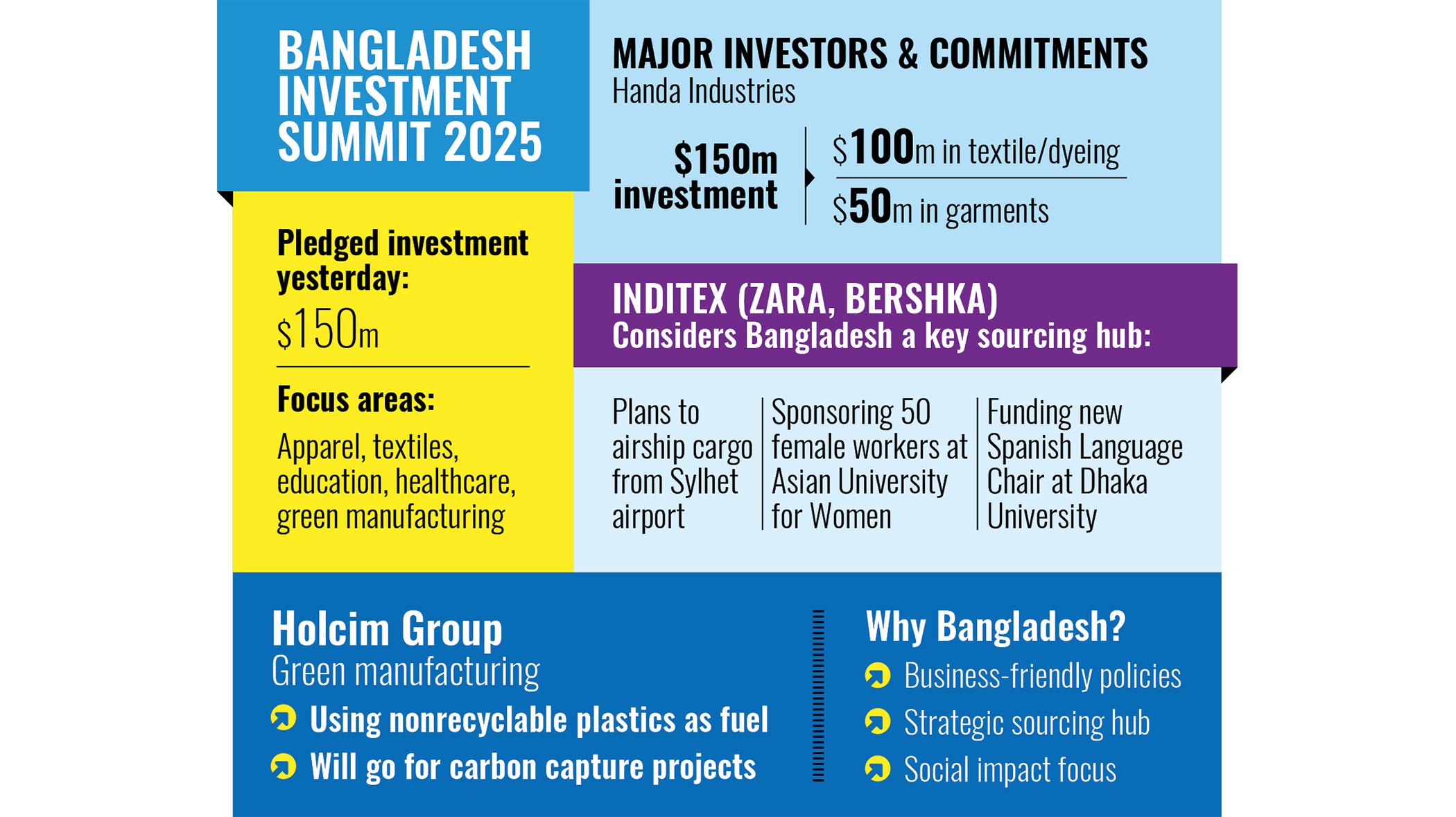Bangladesh at risk of slipping to third in global RMG export

Bangladesh's position as the world's second-largest apparel exporter could be at risk as Vietnam is quickly catching up with better logistics, more diverse products, and smoother trade processes, a top exporter warned yesterday.
"Bangladesh is very close to Vietnam. But if we don't jump into our businesses, we may lose the glory of holding the second spot," said Kihak Sung, chairman of Youngone Corporation, a pioneer in Bangladesh's readymade garments and textile sectors.
Sung made the remarks while speaking at an event during the Bangladesh Investment Summit 2025 at the InterContinental Dhaka in the capital.
The Bangladesh Investment Development Authority (Bida) organised the four-day summit, with Sung speaking at a session titled "Bangladesh Moving Forward: Through an Investor's Lens."
Sung said Vietnam exported $44 billion of clothing and textiles last year.
"Bangladesh truly aspires to become the number one apparel-exporting country in the world. That is our dream. So, I urge government agencies to take the necessary steps to make it happen."
The founder of the Korean Export Processing Zone also criticised Bangladesh's port bottlenecks and long lead times.
He noted that Vietnam can export apparel to the US market at least three weeks sooner than Bangladesh.
"A three-week gap is very critical in the fast-paced fashion industry," he said, adding that buyers naturally want to place their orders where they can be fulfilled quicker.
Bangladesh produces more commodities than Vietnam, but product quality is worse than Vietnam's, he said.
He added that buyers are paying higher prices when garments are made in Vietnam. As a result, although labour costs in Vietnam are about 40 percent to 50 percent higher than in Bangladesh, it is a more lucrative destination.
"Currently, we make more profit in Vietnam, which means Bangladesh is not winning this competition in the global market."
He said if Bangladesh could reduce customs-related delays by one week to 10 days, half of the hurdles that cause delays would be resolved. It would also help to overcome geographical challenges.
Commenting on recent trade developments, Sung said, "The three-month suspension of the Trump-era tariff policy provides some relief. The Bangladesh government's proactive steps in this regard are commendable."
At the event, Javier Carlos Santonja Olcina, regional head of Bangladesh at Inditex, said Bangladesh probably has the best factories in the world in terms of LEED certification.
"But unfortunately, the port capacity and the airport capacity are not enough," he said. "So, we need to be very flexible. That means combining shipment modes – sea, air, and land."
Rear Admiral SM Moniruzzaman, chairman of Chittagong Port Authority, said they are exploring technologies that will make port activities smoother.
Md Tareq Hasan, first secretary of the NBR, said the recently launched National Single Window is helping exporters significantly.
Speaking at the event, Lutfey Siddiqi, special envoy on International Affairs to the Chief Adviser, emphasised the need for local preparation to mitigate global risks in light of the new US tariff regime and cuts in aid.
"We can't rely on preferential treatment, whether it's GSP or other LDC-related advantages. We must become much more self-sufficient," he said, stressing the importance of reforms, including in the labour sector.
Gayle Martin, interim country director of the World Bank, and Anwar Hossain, administrator of the Bangladesh Garment Manufacturers and Exporters Association, also spoke on the occasion.
Rubana Huq, vice-chancellor of the Asian University for Women, and Shams Mahmud, managing director of Shasha Denims, moderated the discussion.
On April 10, Kihak Sung was awarded honorary citizenship of Bangladesh for his outstanding contributions to the industry and the country's economy.



 For all latest news, follow The Daily Star's Google News channel.
For all latest news, follow The Daily Star's Google News channel. 

Comments